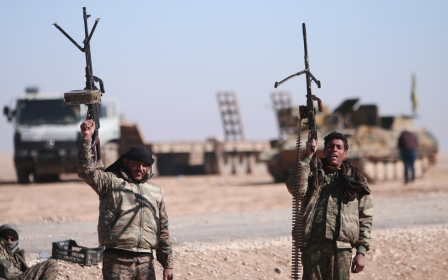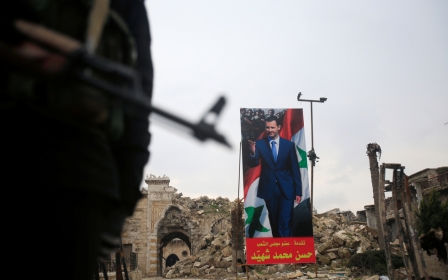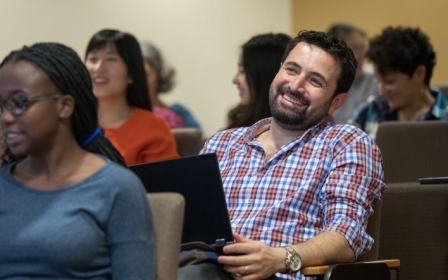UNHCR chief says safe zones would not work in Syria
The head of the United Nations refugee agency said on Friday that safe zones would not work inside Syria for people fleeing the country's nearly six-year-old war.
U.S. President Donald Trump said last week he would "absolutely do safe zones in Syria" for refugees escaping violence and that Europe had made a mistake by admitting millions of refugees.
"Frankly, I don't see in Syria the conditions" to create successful safe zones, U.N. High Commissioner for Refugees Filippo Grandi said at a news conference in Beirut.
"With the fragmentation, the number of actors, the presence of terrorist groups, it's not the right place to think of that solution," he added.
In a meeting with Grandi on Friday, Lebanese President Michel Aoun said earlier that world powers must work with the Damascus government to create safe zones in Syria so refugees can return to their country.
At least a million Syrians have fled since 2011 into Lebanon, which has an estimated total population of less than six million.
The war has divided Syria into a patchwork of areas controlled by President Bashar al-Assad, various rebel groups fighting to unseat him, Kurdish militia and Islamic State militants.
According to a document seen by Reuters, Trump is expected to order the Pentagon and the State Department to craft a plan for the safe zones, a move that could ratchet up U.S. military involvement in Syria.
Trump has not provided details about the proposed zones, except to say he would have the Gulf states pay for them. Policing them could prove difficult in a war zone dotted with armed groups.
The U.N. refugee chief, who had just completed a visit to Syria, said his agency had not been approached about the plans and there were no details on what would constitute a safe zone or how it would be enforced.
"Let's not waste time planning safe zones that will not be set up because they will not be safe enough for people to go back," Grandi said. "Let's concentrate on making peace so that everything becomes safe. That should be the investment."
The Syrian government said on Monday that any attempt to create so-called safe zones for refugees without coordinating with Damascus would be "unsafe" and violate Syria's sovereignty.
Rebel backers including Qatar have welcomed Trump's support for safe zones, and Turkey says it is waiting to see the outcome of the U.S. president's pledge.
The conflict has killed hundreds of thousands of people, made more than half of Syrians homeless and created the world's worst refugee crisis.
Trump also signed an executive order last week that halted refugee arrivals for four months, barred Syrian refugees indefinitely and temporarily banned citizens from seven mainly Muslim countries, including Syria.
The UNHCR estimates that around 20,000 refugees worldwide would be affected by the hold on the U.S. resettlement program, Grandi said.
"We are taking exception to discrimination," he said. "All people that are vulnerable, irrespective of their ethnic or religious affiliations, should be given a chance to benefit from this program."
New MEE newsletter: Jerusalem Dispatch
Sign up to get the latest insights and analysis on Israel-Palestine, alongside Turkey Unpacked and other MEE newsletters
Middle East Eye delivers independent and unrivalled coverage and analysis of the Middle East, North Africa and beyond. To learn more about republishing this content and the associated fees, please fill out this form. More about MEE can be found here.




